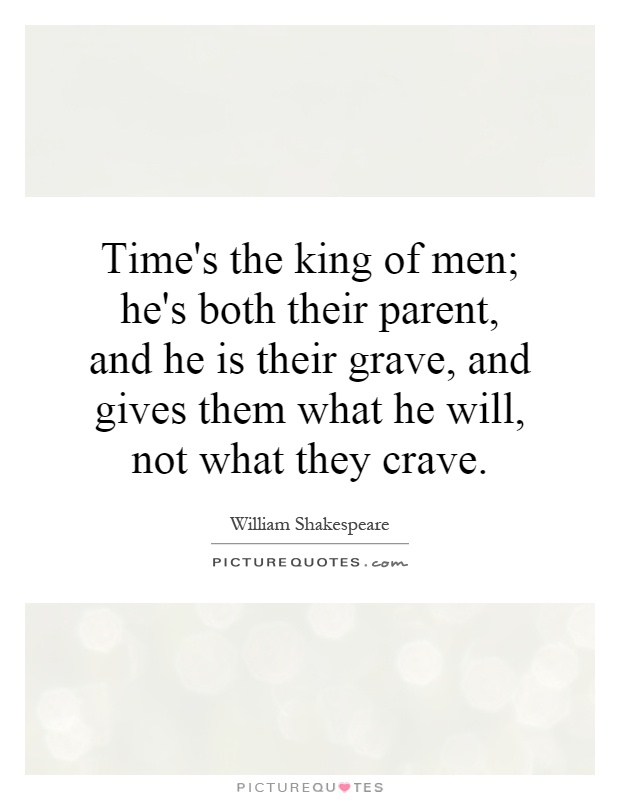Time's the king of men; he's both their parent, and he is their grave, and gives them what he will, not what they crave

Time's the king of men; he's both their parent, and he is their grave, and gives them what he will, not what they crave
In the world of William Shakespeare, time is a recurring theme that is often explored in his plays and sonnets. The quote “Time's the king of men; he's both their parent, and he is their grave, and gives them what he will, not what they crave” perfectly encapsulates the way in which Shakespeare viewed time as a powerful force that governs the lives of all individuals.Shakespeare often used time as a metaphor for the inevitability of death and the passage of life. In many of his works, characters grapple with the fleeting nature of time and the way in which it shapes their destinies. Time is portrayed as a relentless force that cannot be stopped or controlled, and that ultimately leads to the demise of all living beings.
In the quote, Shakespeare personifies time as a king who holds dominion over all men. Time is described as both a parent and a grave, highlighting its dual nature as both a creator and a destroyer. Time gives men what they need, not necessarily what they desire, emphasizing the idea that time is a force beyond human comprehension or manipulation.
Throughout his works, Shakespeare explores the ways in which time affects human relationships, ambitions, and desires. Characters often struggle against the constraints of time, trying to defy its limitations and hold onto moments of happiness and love. However, time always proves to be an insurmountable obstacle, leading to heartbreak, loss, and ultimately death.












 Friendship Quotes
Friendship Quotes Love Quotes
Love Quotes Life Quotes
Life Quotes Funny Quotes
Funny Quotes Motivational Quotes
Motivational Quotes Inspirational Quotes
Inspirational Quotes